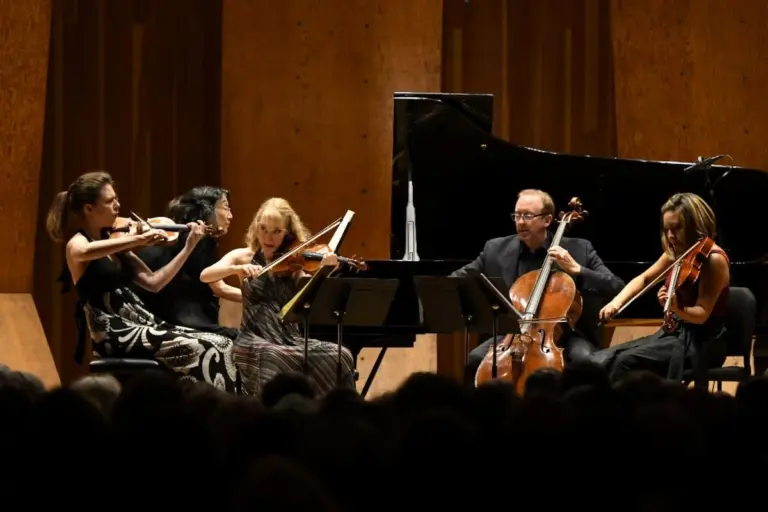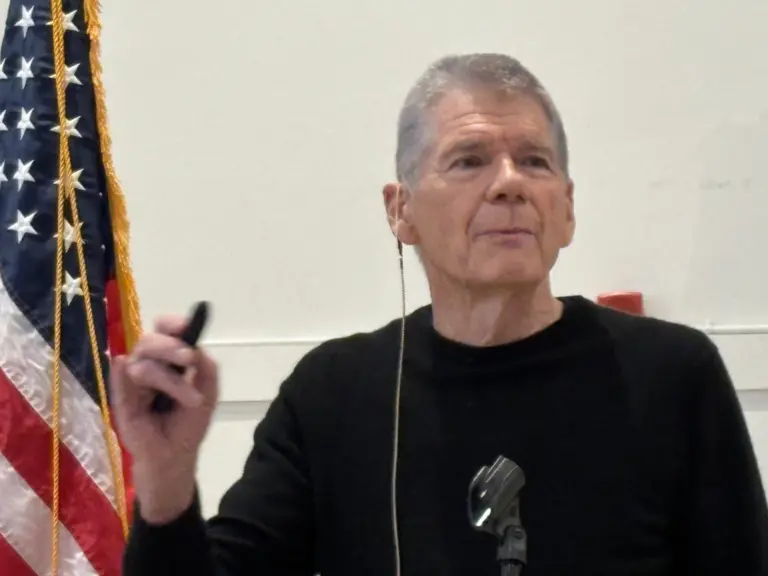By Rabbi Mitchell M. Hurvitz
During the evening Rosh Hashanah Worship Service, I experienced severe orthostatic hypotension and a syncope event during my sermon.
Subsequent testing has shown that my lymphoma is rearing its ugly head, and I will require new treatments. Fortunately, the miracle of modern medicine prompts a very optimistic outcome, and I will hopefully only need to make some minor adjustments while undergoing treatments.
The message of my sermon last week happened to be that we each experience different seasons in our personal lives: spring, summer, fall, winter, and hopefully, spring yet again.
Below is a brief excerpt from my sermon.
L’Shanah Tovah — A Happy, Healthy, and Peaceful New Year!
Rabbi Mitch
With our season of spring, we experience the power of hope, the joy of new beginnings, and the exciting opportunities ahead of us.
With our season of summer, we note the signs of growth, the need to protect and maintain what we have, and the abundance of distractions that come when we have a lot to preserve and maintain.
With our fall season, we measure our success and achievements, as well as our failures, and this is why our Jewish New Year begins amidst the Autumn season.
Our High Holy Day liturgy also makes us consider our season of winter, the times of sadness, heartbreak, loneliness, sickness, and death that eventually we must all confront.
From the start of Rosh Hashanah until Yom Kippur concludes, we address everything ahead that might be difficult; “who shall live and who shall die, “ and we pray and hope to be able to arrive at another new spring. That’s what all of the liturgy of the Mahzor is about: reflecting, planning, and learning.
We stand before God and know that if we fail to plan how best to move forward, then we are planning how to fail. So, how do we effectively plan?
Roseanne loves the TV series “This is Us,” and I finally began watching the show with her this summer. It’s a challenging show, purposefully intending to make viewers feel the ups and downs of the roller coaster that is Life.
In the first season, eighth episode, the character of a visiting younger woman who had just rejected her suitor’s thoughtful offering of a slice of pie goes outside to prepare to catch an Uber. But, out on the porch was her suitor’s brother’s biological father, suffering from terminal cancer.
Awkwardly, the young woman asks the old grandfather, “How does it feel to be dying?” The grandfather pauses, contemplates, and slowly begins to answer: “It feels… like all these beautiful pieces of Life are flying around me, and I’m trying to catch them. When my granddaughter falls to sleep in my lap, I try to catch the feeling of her breathing against me. And, when I make my son laugh, I try to catch the sound of him laughing, how it rolls up from his chest. But the pieces are moving faster now, and I can’t catch them all. I can feel them slipping through my fingertips.
And, soon, where there used to be my granddaughter breathing and my son laughing, there will be…nothing.”
The character of the younger woman – all she can shakily respond is “Oh.”
And, then the grandfather goes on and says: “I know it feels like you have all the time in the world, but, you don’t. So stop playing it so cool; catch the moments of your Life. Catch them when you’re young and quick because you’ll be old and slow sooner than you know it, and there will be no more of them to catch. And, when a nice boy who adores you offers you pie, Say THANK YOU!”
“Catch the pieces while we can” is what it means to choose Life.
Each of us wanders through the seasons of our lives. Ultimately, we will confront our final winter. And it is within this context that the language of our Mahzor prayers imagines God as judge and Sovereign, sitting in the divine court, on the divine throne of justice, reviewing our deeds. On the table before God lies a large book with as many pages as there are people in the world. And each of us has a page dedicated just to us. And, written on that page by hand, in our writing, is everything we’ve done during the past year.
God considers those things, weighs the good against the bad, and then, as the Prayer declares, God decides “who shall live and who shall die.” But this isn’t a scenario of “reward and punishment.”
God’s interest isn’t about a desire for Divine Retribution. Instead, God’s interest is only about how we might redirect the trajectory of our lives as we navigate through all our Seasons.
“On Rosh Hashanah, it is written, and on Yom Kippur, it is sealed: Who will live and who will die. And, it’s only with Repentance, Prayer, and Righteous Acts that we can transform the severity of the decree.”
Unataneh Tokef prompts us to be mindful of our end and recognize the conclusion of the Seasons of our Lives.
Temple Sholom’s Senior Rabbi Mitchell M. Hurvitz is a scholar, teacher, community activist and preacher, and is recognized as one of the prominent religious leaders in the Greenwich area and beyond. A frequent guest speaker at synagogues and churches, study groups, community institutions and universities, he is a charismatic personality who engages individuals and stimulates hearts and minds. His teachings can be found in Greenwich Sentinel and in other local and national publications.




